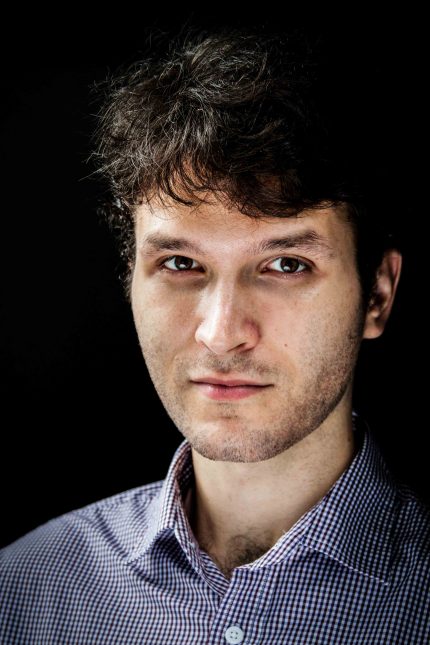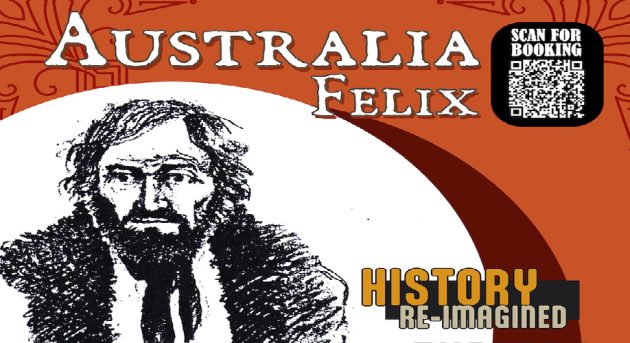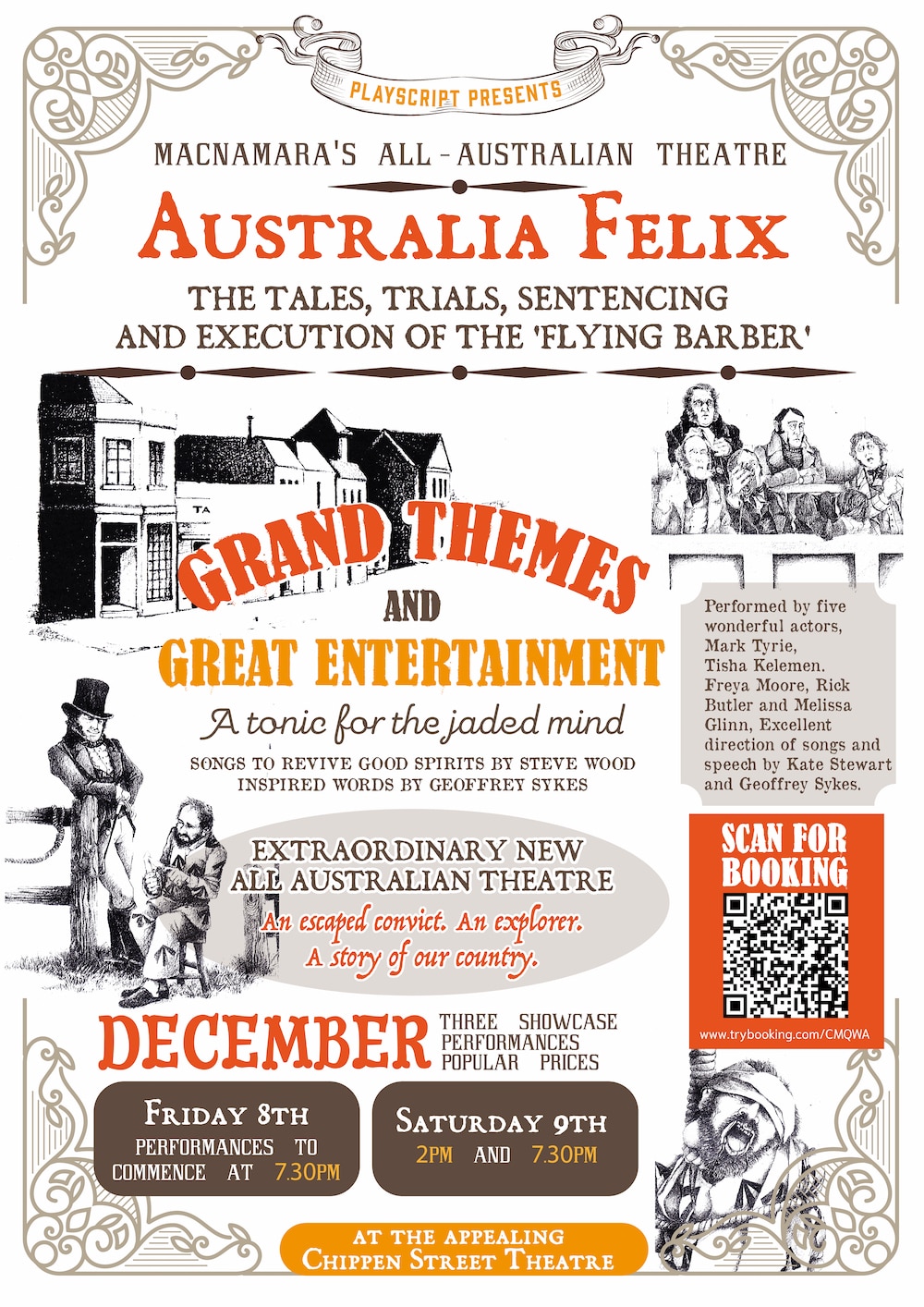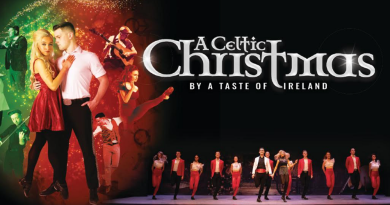Rick Butler’s Theatrical Journey from the Australian Institute of Music to AUSTRALIA FELIX
A Reinterpretation of Australian Lore and Theatre: ‘Australia Felix’ weaves an enthralling narrative around George Clarke, known as “The Flying Barber,” a runaway convict in early New South Wales who integrates with nine Aboriginal tribes. His unique journey as a bush explorer captures the attention of Thomas Mitchell, the NSW Survey General, leading to a significant exploration based on Clarke’s discoveries and maps. This play, presented on the eve of Clarke’s execution, delves into his adventures and misadventures, including his time at Norfolk Island and Van Diemen’s Land.
Through the creative lens of a travelling theatre troupe from the era, ‘Australia Felix’ offers a fresh perspective on early Australian history, intertwining Clarke’s story with that of Mitchell. The play transcends time, drawing parallels with contemporary societal debates and values. It is a rich tapestry of compelling storytelling, robust performances, and meticulously crafted songs and dialogue, all contributing to a narrative that redefines Australian identity and cultural heritage.

His time at AIM was more than just an education; it was a dive into the heart of music theatre. “The gamut of musical theatre history we explored at AIM was invaluable,” he reflects. This varied background has equipped him with a diverse ‘toolbelt’ of styles, something he finds crucial for his role in ‘Australia Felix’. Rick draws a parallel between his vaudevillian era studies at AIM and the troubadour style of ‘Australia Felix’, showing how his training has directly influenced his current role.
As an AIM graduate, how has your training influenced your approach to your diverse roles in theatre, and how do you think it has prepared you for your role in ‘Australia Felix’?
Having the opportunity to spend two years immersing myself in all sorts of roles and theatrical genres has been invaluable to my approach to creating characters. The opportunity to learn from practicing industry professionals was a true highlight from my time at AIM. As a music theatre course, it ran the gamut of musical theatre history from Tin Pan Alley to modern Broadway, and being able to understand the evolution of the craft gives you a toolbelt full of styles to draw upon. I’m particularly thankful for the time we spent looking at the vaudevillian era, as it’s remarkably similar to the showmanesque troubadour style that Australia Felix is presented in.
Rick’s career is marked by a number of roles, from the playful world of ‘The Drowsy Chaperone’ to the contemporary Australian music theatre scene. He emphasises the importance of research and trust in the director’s vision, especially in a complex production like ‘Australia Felix’. “The characters we’re playing are part of a nineteenth-century troupe,” he explains, revealing the unique challenge of portraying a show within a show.
You have an impressive range of theatre credits, from ‘Merrily We Roll Along’ to ‘The Drowsy Chaperone’. How do you prepare for such varied roles, and what unique challenges do you anticipate in portraying your character in ‘Australia Felix’?
“Varied roles” is the perfect way to describe it! I’ve been very blessed to have the opportunity to use that breadth of training, from the cheesey vaudeville-styled Chaperone to the Golden-Age-of-Musicals-inspired world of Merrily, through to the burgeoning realm of contemporary Australian music theatre. Research is important, especially in pieces based on real events, but I find the most important part of preparing is trusting that the director’s seen something in you that suits the role, and making sure to give the rehearsal room 100%.That’s been especially true for Australia Felix. The characters we’re all playing are members of a nineteenth-century troupe of travelling players under the banner of MacNamara’s All-Australian Theatre, who then play stylised characters in the show-within-a-show, and figuring out how that works has been a pretty unique challenge. Writer/director Geoffrey Sykes made the very clever choice early on while writing the script, that no matter what show-within-a-show character we’re playing at any given moment the text will always attribute the line to the name of the player playing that character. It’s a neat little reminder that underneath everything I’m playing MacNamara, no matter what part he’s currently playing in the story. We have a beautiful opening sequence that introduces us to the cast of five and the general premise, and the text gives us a few clues about who these troubadour characters are and how they relate to each other, but once they start telling the main story we’ve really only got ourselves to work with. Most of us are on stage for the majority of the show, helping with set transitions and providing little snippets of narration, so discovering who we are when we’re not in the spotlight has been a very fun process, mostly coming from ideas that the cast have brought along and our organic interactions both on and off stage.
With previous directorial experience in ‘The Great Divorce’, Rick brings a director’s eye to his acting. “It gives me more appreciation for the collaborative nature of forming a character,” he says. In ‘Australia Felix’, this insight has helped him navigate the intricate layers of the production, where he also plays the director of the travelling players.
Having directed ‘The Great Divorce’, how does your experience as a director influence your perspective and performance as an actor, particularly in a complex production like ‘Australia Felix’?
I play the director of our band of traveling players, so having experience ordering people around certainly helps! Mainly, having experience as a director has given me more appreciation for the collaborative nature of forming a character, and makes me respect even more the trust that a director places in me as an actor to bring their vision to life. In a complex show like this, that collaborative spirit is even more crucial, as our underlying characters are even more inspired by interactions with our fellow cast members. Speaking of which, we’ve got such an intelligent and creative cast, with nearly everyone having some experience with either direction or writing, as well as a very sharp direction team in Sykes along with Kate Stewart, so our rehearsal room overflows with ideas about staging, minor script edits and musicality. This can sometimes be a little chaotic, but the way I see it, every little disagreement and minor annoyance brings us closer to the feel of a travelling theatre family, and Geoffrey and Kate are always able to reign us in!
A regular with the a cappella band The Spare Keys, Rick’s musical talent shines through in ‘Australia Felix’. He carries the musical load of the production, playing guitar and contributing to vocal harmonies. Composer Steve Wood’s music, according to Rick, blends nineteenth-century melodies with contemporary depth, brought to life under musical director Kate Stewart’s skillful management.
As you might have guessed, I’m a music theatre person at heart. While not strictly a musical, Australia Felix definitely takes its cue from the vaudevillian troubadour style, mixing up scenes and monologues with songs that comment on the story, as well as underscoring and some moments of dramatic body percussion. Thankfully, there’s a lot about my character that screams “musical theatre,” from the showmanship to flashy movement to the guitar always hanging on his neck. I carry the bulk of the musical load, playing guitar for most of the songs, chiming in with the occasional vocal harmony, and driving a lot of the musical and percussive moments, so having a lot of actor/musician and choral experience to fall back on has certainly come in handy!Composer Steve Wood has written some truly extraordinary music that at first glance emulate the simple and catchy melodies of nineteenth century popular music, but somehow contain enough depth and variation to make any music nerd grin. Musical director Kate Stewart has skillfully managed to bring these songs to life with very limited instrumentation by using these tools sparingly, mixing up playing styles, harmonies and even presenting one number a capella!Incidentally, I would like to aca-pologise to the Spare Keys for daring to play an instrument in this show. I have committed aca-postasy and will perform the necessary aca-tonement rites in time for our Christmas season.
Rick speaks passionately about the historical authenticity in ‘Australia Felix’. “The script nails the theatrical style of the era,” he observes. The show is not just about the past but is a reflection on how historical narratives can influence contemporary discussions on justice and advocacy.
Thankfully, most of the authentic representation of the period has already been taken care of by Geoffrey’s script, which really nails the theatrical style of the era, presenting a lot of text in spoken verse, including fun sections of narration, and giving our troubadours a ton of not-quite-caricature side-characters to play around with. It’s impossible to read this script without sounding like you’re directly out of the nineteenth century, so a lot of authenticity has really just come naturally as I’ve learned more about this archaic style of theatre. Half of the appeal of this show to me is the style, this brave throwback to an earlier form of theatre that gives us a chance to look at where the art form has come from through a modern-day lens.
Australia Felix is really a show about us reckoning with our past, told through the lens of people reckoning with their past. Our late nineteenth-century troubadours are telling the story of an early nineteenth-century convict, so we’ve really got two historical periods that we’re trying to represent. The narrative of the show-within-a-show, that of convict George Clarke’s adventures and misadventures, brings us through the not-so-long-ago atrocities of convict slave labour, the displacement if Indigenous people, the corruption of the justice system and eventually the death penalty, all while providing the perspectives of sympathetic contemporary characters who were powerless to stop any of it. I think part of the genius of setting our troubadours a short half-century after the fact is to highlight the fact that there have always been people speaking out against injustice. For instance, Clarke was an early advocate for Indigenous peoples, but due to a few strategic errors and some strong opposition his advocacy didn’t accomplish much. Our plucky group of troubadours telling his story 50 years on represents the continued advocacy falling on mostly deaf ears, leading to injustices still happening to this very day. If those who don’t learn from history are doomed to repeat it, then I don’t think this country’s learned enough about history.
Rick offers a candid view of Australian theatre, particularly in music theatre. He laments the lack of evolution in the representation of historical and cultural narratives. “Homegrown writers often have to develop their work overseas,” he notes. Rick sees ‘Australia Felix’ as part of a movement to change this narrative, bringing Australian stories to the forefront through innovative indie productions.
As a primarily music theatre person, I can tell you that Australian theatre in that space hasn’t had much evolution to speak of. It’s very telling that in order to get their work onto Australian mainstages and reach wider audiences, homegrown writers like Tim Minchin and Eddie Perfect have had to develop their work overseas and re-import it. Once in a blue moon you’ll get a ridiculously hard-working and dedicated team, like those behind Squabbalogic’s brilliant The Dismissal, able to claw their way to success, but the vast majority of our popular music theatre scene is taken up by imports from the US and UK. Until this changes, it falls upon indie writers and producers to tell our historical and cultural stories, and to find new and innovative ways of doing so. Part of the reason I’m so excited for Australia Felix is the fact that it’s been specifically designed around this problem – we’re a scrappy band of players speaking to whatever small audience might have gathered around. We just want to remind people of where Australia came from and where it could go, and, if all goes well, move right along to the next town and do it all over again.
As ‘Australia Felix’ gets ready to hit the stage on Friday 8th and Saturday 9th December at the Chippen Street Theatre in Sydney, Rick Butler is a shining example of the spirit and creativity in Australian theatre. His path from the Australian Institute of Music to this point isn’t just his own success story. It’s an inspiration for upcoming performers and shows just how powerful a good story can be on stage.
Season Details
Venue: Chippen Street Theatre, Sydney
Dates: 8-9 December 2023
To book tickets click HERE.




